The Sharing Economy
Authors: Elise van Beurden, Niels Buwalda, Leon van Genderen, Richard Haag, Marleen Ooms, Leon Ragetlie, Zehra Sagay, David Verdonk and Deanna Herst
Sharing Economy / Open Design?
An increasing number of designers share their designs according to 'open source' principles. This way, they allow consumers to influence the making process by participating in the development at an early stage ('prosumers'), participating in the financing (crowdfunding, Kickstarter, CRWDBLDNG (a Blauwhoed and Space&matter collaboration) or participating in the fabrication ('manufacturing revolution', Fablabs, Bitcoin, WikiHouse). This raises questions about possible business models for a 'sharing economy'.
Utopian realism in the north of Rotterdam
Two previously boarded-up buildings in the middle of a residential area in the north of Rotterdam as an object of study. Less than a year ago, association 'Stad in de Maak' ('The City in Making') acquired these buildings for a ten-year period, and took the opportunity to experiment with alternative forms of property development, alternative housing, communal spaces and new micro-economies. There are several artists and designers on location engaged in, for example, the building of an intern-in-residence apartment and a 'modular living machine'. For this project in the Pieter the Raadtstraat, Stad in de Maak is researching various business models suitable to their philosophy of open design, open management and open development. For example, time bank services in order to make the space suitable for future use. Currently, there is no clearly defined intended function for the spaces on the ground floor. How utopian-realist could new functions for this floor be? Who constitutes the related community? Can one design a new relevant business model as a self-sustaining system?
The masterclass / STEALTH.unlimited
Ten students from different disciplines joined Stad in de Maak at Pieter de Raadtstraat 35/37 near Rotterdam CS and were asked to design a concept within 30M3 as a test space. Guided by the STEALTH.unlimited team (archives duo, co-finders of Stad in de Maak), they held a brainstorm session on how to organise a small, self-sustaining business that could engage a community. Different ideas popped up: an open kitchen, where people can 'swap' their left-over food; a soup bar, made by vegetables grown in the 30M3 cube; a DIY-brewery or a try-out poppodium, to test your band.
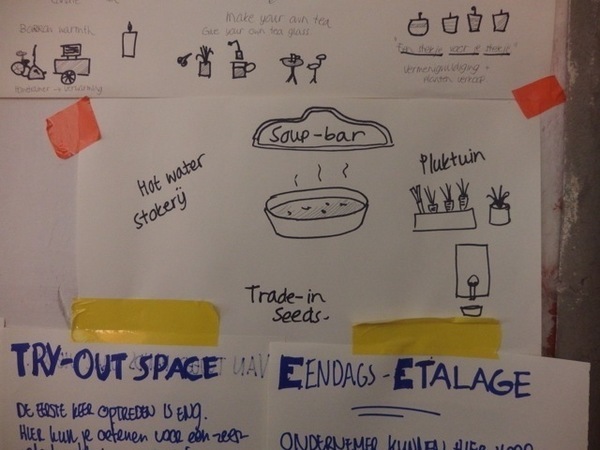
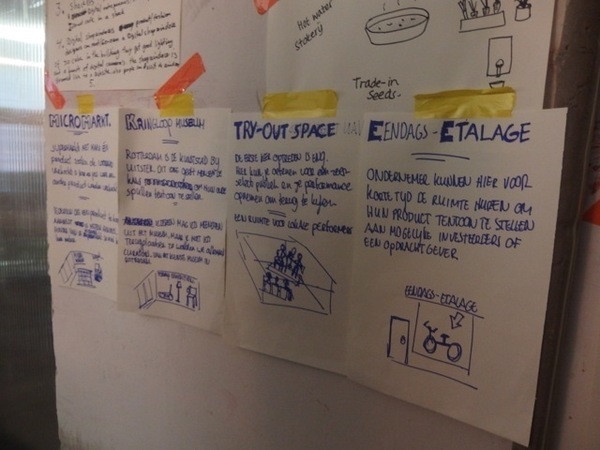
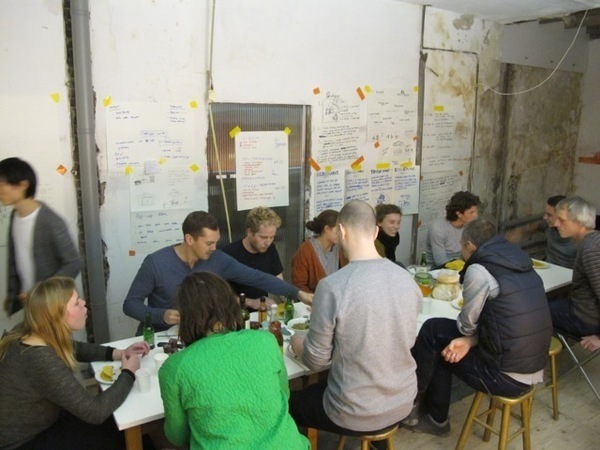
Swap Food Rotterdam
Project 'Swap Food Rotterdam' is about sharing food among people from the neighborhood. Pieter de Raadtstraat 35/37 intends to encourage people to share food that is left. People who can not cook or just want to eat something else, can come together in this place. It also applies to people who cook too much or who bought too much in the supermarket. The neighborhood is very important here and the people make the difference together: people who have to offer food and people who need food get together. The street's inhabitants can make use of each others resources and reduce food waste. The project is more about social than financial profit. Example: someone who likes to grow vegetables but would also like to share, can exchange his goods with someone who makes, for instance, honey. The products you have to offer can only be exchanged for other food or services, not for money. This way, the street develops its own system. This raises questions about value: how much is ten carrots worth? Can you swap these for a honey pot?
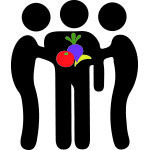
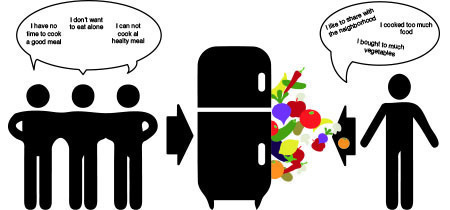
Neighbourhood
The project takes place in a neighbourhood behind Rotterdam Central Station. This used to be a busy shopping street. Now it is a quiet street, where not much is happening. This street has its own rules and suggests the potential of social interaction. During the opening of the house in the Pieter de Raadtstraat, people from the neighborhood came to have a look. Given their curiosity, we think the neighborhood will also respond well to a social project.
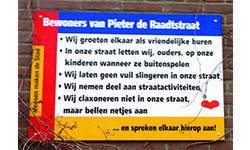
And we share our food
Persona
OMA JANNIE 70 YEARS YOUNG Parkinson's disease makes it difficult for her to walk. Elena takes oma Jannie and her food to the food swap shop in exchange for a nice dinner with the neighbourhood.
PETER BAKING ENTHOUSIAST Peter likes to bake pies, but he lives by himself and always bakes too much. He would like to share his delicious pies with his neighbours. This way, he doesn't have to eat alone anymore.
ANNE THE MUSHROOM LADY Anne likes to go to the forest to find mushrooms. She can't cook and eat all of them herself. Now she can go to the food swap shop and exchange her mushrooms for her neighbours honey.
HELENA LOCAL FARMER Helena grows her own vegetables. At the moment, it's salad season. She brings her left-overs to the food swap shop in exchange for mushrooms.
LEONARD THE NON-COOKING STUDENT Leonard is a third year economy student. Besides studying, he doesn't have time to cook a decent meal. In exchange for a nice home-cooked meal, he helps out in the food swap shop during the weekend.

Visual
The space is 30M3. It can be decorated with a small refrigerator, table, sink and chairs, all second-hand from the people of the neighbourhood. At night, you can enjoy the meals here you've exchanged. The people decide for themselves what they need at this place, and make it a success.
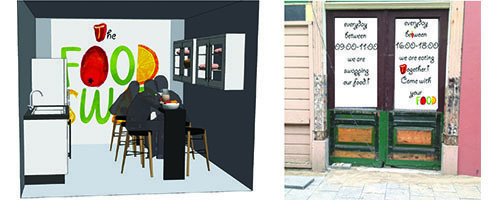
The Jouwerij
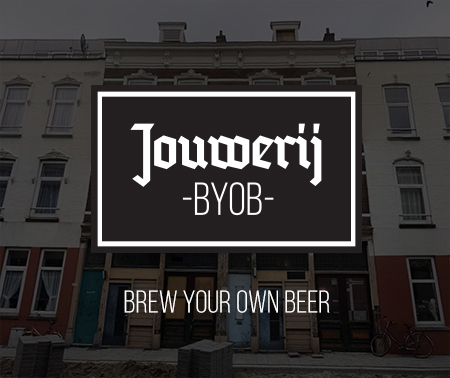
In a sharing economy, we make use of open source principles, we allow consumers into the making process and the financing of it. In the masterclass 'The Sharing Economy', we came up with a business concept for a possible new economic system. The thought of having consumers in the starting-up, making and financing process immediately spoke to our imagination. DIY and making 'movement' grows bigger every year. Making things is cool again and people love to work on their artisan skills and sharing those with others online. We saw an opportunity here and decided to jump in and start a makers guild; a makers guild in the beautiful craft of brewing beer.
Brewing beer is almost as old as humanity. It possibly dates back to around 9,500 BC and is therefore one of the world's first prepared beverages. Still going strong, there are now thousands if not millions of different kinds of beer brewed. There is a big community of hobbyist, amateur, semi-professional and small, local brewers all over the world. This is a community we really want to tap into (pun intended) and involve into our sharing economy plan.
Because the beer brewing process is relatively easy and fast, people can brew it in their own homes and experiment with different ingredients for different outcomes. The problem for most people living in city areas is of course, space for the brewing installation. To resolve this problem we came up with the 'Jouwerij' translated: you-brewery. The Jouwerij is an open brewery where beer brewing enthusiasts, both amateur and professional can come together and experiment, exchange knowledge and of course brew and enjoy their very own beer in their very own brewery/cafe, thus the name Jouwerij. As a pioneering experiment, we will first set up an installation of just 30M3 and it will contain three separate brewing units for three beers to be brewed at once. As a final measure, we will build in a cooler and a tap. This way, the beer can be consumed as soon as it is finished brewing, turning the brewery automatically into a cafe with three different beers on tap!
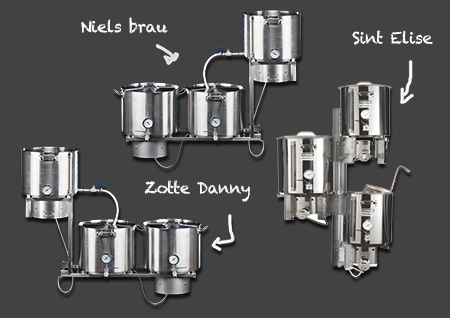
The business model of the Jouwerij is very simple. The goal of the Jouwerij is not to make profit perse, but rather to sustain itself and not have more expenses than income. We will invest some money in building the brewing installations, but we will make as much stuff ourselves with the help of hobbyist brewers. Brewers can also bring their own equipment if they like and set it up at the Jouwerij. When aspiring brewers want to use the Jouwerij, all they'll have to do is bring their own brewing ingredients; we provide the brewing equipment. After the brewing process is finished, the beer will be split 50/50: one half will be bottled and goes to the brewer, the other half wil be on tap in the Jouwerij and sold to paying customers. This way, brewers will have a nice environment to brew and experiment with their own product, a place to share knowledge with other enthusiasts and get to know new people with the same passion as they have.

Probeer Podium Rotterdam

In the masterclass, 'The Sharing Economy' we were asked to think of new uses for a 30M3 space and include a model for a sharing economy to make it work for a period of at least ten years.
The location for which we needed to design is situated at the Pieter de Raadtstraat, just a short seven minute stroll from Rotterdam Central Station. The location itself isn't very well-known for it's passed time activities. The building itself is an 1850's four floors old soap factory. Our mission was to design solely for the ground floor level, while the other floors are being turned into apartments.
After a brainstorm session, we thought of who could benefit from such a confined place. We came up with a 'Probeer Podium Rotterdam', the smallest cultural stage in the city, where children, business men, artists and performers can practice and play their art or presentation. The small space has a great atmosphere that might serve as a good preparation for the real deal. Or just to give a spectacular performance to a limited audience.

The stage and the performance is basically indoors, but the building itself gives the performer the ability to move the performance on to the street. If you open the double doors, you're creating a direct connection with the street. This makes it possible for the audience and neighbourhood to enjoy the performance life in the centre of the street. The 'Probeer Podium' is available for all artists who want play or practice their performance. Artists can register themselves in an online open agenda. Artists who register will be asked on for hand to pay a small fee to pay for the general expenses. The artist is allowed to bring his own audience and is allowed to decide the size of the audience. Both artist and audience are allowed to make use of the bar as a community and are sponsoring themselves to pay for the expenses by buying drinks.
For the entire plan to work, the 'Probeer Podium' needs a promoter who plans the upcoming performances. This way, there is a viable programme at least once every week. The promoter also has to make the 'Probeer Podium' a well-known concept throughout Rotterdam. All the artists who have performed, should form a community together to bring their careers to a new level. In the periods that the stage isn't used, it should be available for children who want to jam or learn to play or create.
The goal of the 'Probeer Podium' is to bring artists, children and the community together and to provide a first step to test our skills on stage.
For more info watch our Presentation on Probeerpodium at the Redesigning BUsiness Symposium (nov 2014) - see online video.
Swap Food Rotterdam is a proposal by Zehra Sagay, David Verdonk, Marleen Ooms, students WdKA Rotterdam, with a minor in Open Design The Jouwerij is a proposal by Niels Buwalda, Elise van Beurden, students Advertising and Product Design with a minor in Open Design, WdKA Rotterdam Probeerpodium is a proposal by Leon van Genderen, Richard Haag, Leon Ragetlie, Students WdKA Rotterdam